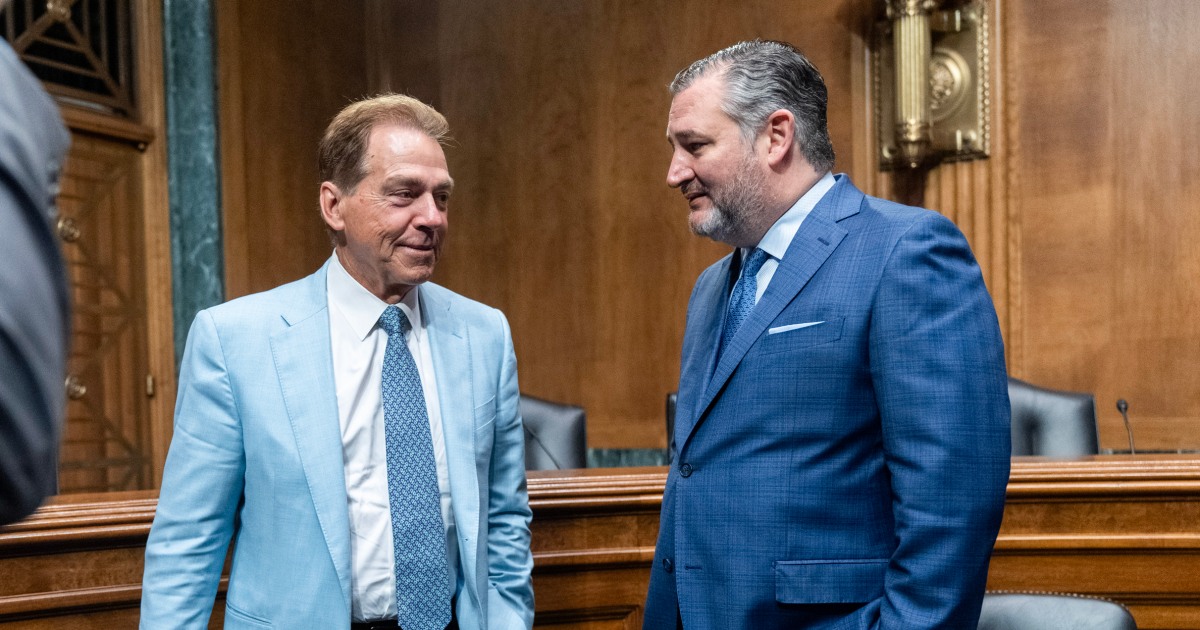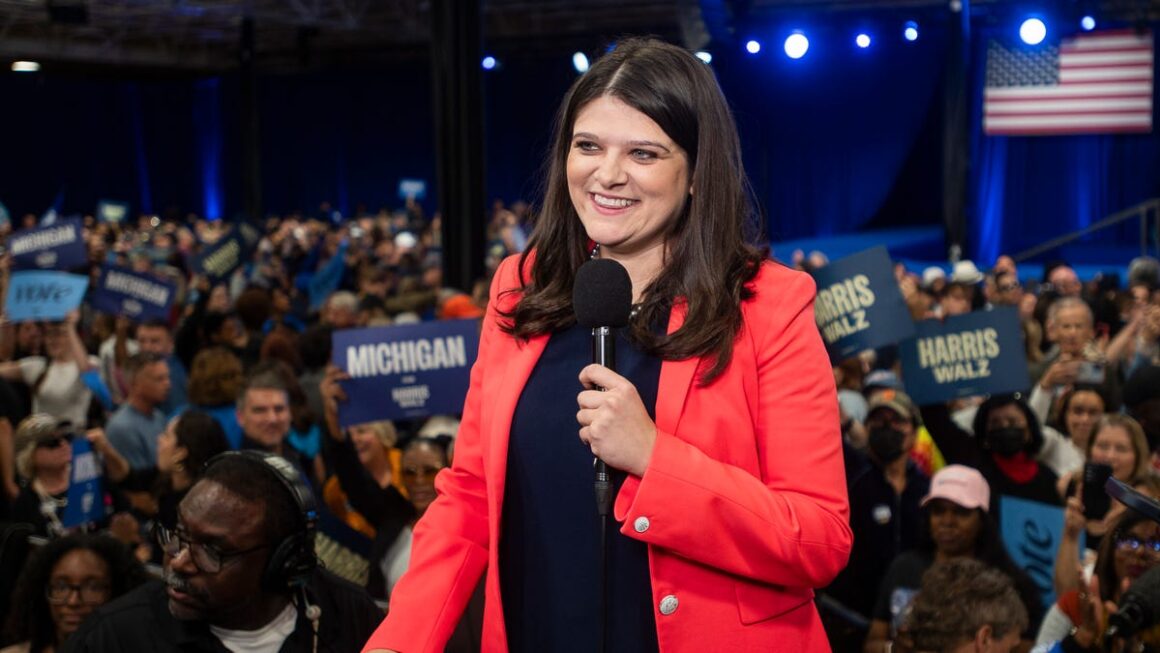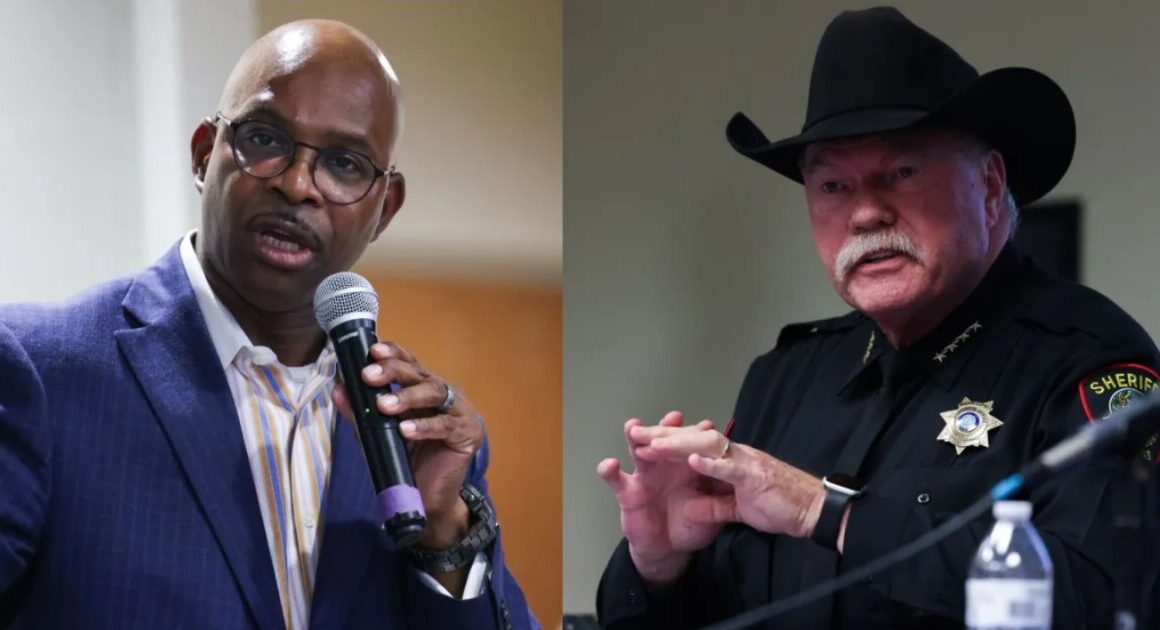Former University of Alabama football coach Nick Saban slammed college athletes as overly entitled during a cringeworthy roundtable hosted by Texas GOP Sen. Ted Cruz in the Capitol on Tuesday.
The conversation was about name, image and likeness rules (known as NIL) in college athletics that currently let players make money by promoting products for third parties in lieu of salaries. A number of notable players have netted deals worth thousands of dollars — in some cases, millions — under the new rules. But the lack of oversight in the NIL has caused a fair amount of chaos and instability for college athletics. Many people across the political spectrum agree something should be done to introduce some order to the process. The question is how to do this in a way that’s fair to athletes, especially those in high revenue-generating sports like basketball and football.
On that note, Saban accomplished the noteworthy feat of delivering the most offensive remarks of the day, despite sharing a platform with Cruz.
Saban claimed National Football League coaches have told him today’s players entering the league are too entitled, thanks to the current NIL setup, and show “less resiliency to overcome adversity,” which Saban suggested may bleed over into other aspects of their lives. He said college players should be focused on bettering themselves in college and not “how much money you can make while you’re going to college.” (Sounds pretty anti-capitalist to me.)
And when Cruz asked whether the NIL setup was a reason for Saban’s recent retirement, the former coach dialed up the whining.
“All the things that I believed in for all these years — 50 years of coaching — no longer exist in college athletics,” he said, recounting his wife’s claim that players only care about “how much you’re going to pay them.”
Saban’s remarks reeked of patriarchy and, ironically, his sense of entitlement to athletes’ unpaid labor.
Although Saban said he supports players earning money through NIL and backed players earning some share of the revenue they bring schools, he’s staunchly opposed to them making money for their work on the court or field.
Here’s the thing, though: For decades, some portion of college athletes have been getting paid (often under the table) to compete for sports teams. Saban doesn’t explain why players today are more entitled than older players simply because they have access to legitimate streams of income. It’s also laughable for him to suggest he was hired and retained to coach at the University of Alabama because of his ability to mold young men. Perhaps that was a perk, but make no mistake: He was hired to win football games. The more than $121 million he reportedly made coaching ‘Bama was to produce success on the field, and if at any moment he showed he could mold young men — but couldn’t win football games — he’d likely have been fired.
It’s important to be honest about how transactional that relationship is for coaches like Saban. It speaks to what he and others like him see as a sense of “entitlement” in the athletes they lead, many of whom are Black and far less privileged than the coaches themselves. College coaches have long been able to recruit these athletes on the premise that forgoing a salary was appropriate because they were getting all sorts of nonmonetary benefits that made their experience worthwhile, among these (arguably) an education. University of Alabama Athletic Director Greg Byrne literally made that argument during Tuesday’s discussion.
But coaches like Saban never have to accept that kind of tradeoff; no one would seriously propose a coach accept the satisfaction of molding and developing young athletes in lieu of a salary. It’s offensive for him to suggest players should not earn their worth in the name of protecting some collegiate sanctity that never existed.
![]()






